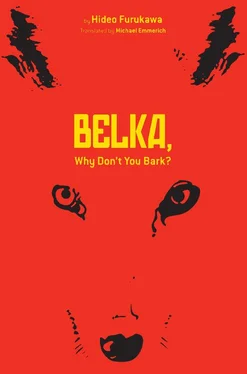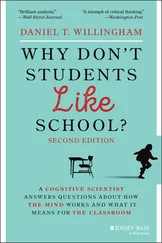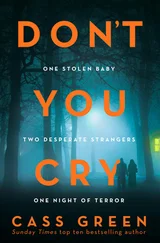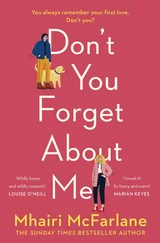Hideo Furukawa - Belka, Why Don't You Bark?
Здесь есть возможность читать онлайн «Hideo Furukawa - Belka, Why Don't You Bark?» весь текст электронной книги совершенно бесплатно (целиком полную версию без сокращений). В некоторых случаях можно слушать аудио, скачать через торрент в формате fb2 и присутствует краткое содержание. Город: San Francisco, Год выпуска: 2012, ISBN: 2012, Издательство: Haikasoru, Жанр: prose_magic, Современная проза, на английском языке. Описание произведения, (предисловие) а так же отзывы посетителей доступны на портале библиотеки ЛибКат.
- Название:Belka, Why Don't You Bark?
- Автор:
- Издательство:Haikasoru
- Жанр:
- Год:2012
- Город:San Francisco
- ISBN:978-1-4215-5089-3
- Рейтинг книги:4 / 5. Голосов: 1
-
Избранное:Добавить в избранное
- Отзывы:
-
Ваша оценка:
- 80
- 1
- 2
- 3
- 4
- 5
Belka, Why Don't You Bark?: краткое содержание, описание и аннотация
Предлагаем к чтению аннотацию, описание, краткое содержание или предисловие (зависит от того, что написал сам автор книги «Belka, Why Don't You Bark?»). Если вы не нашли необходимую информацию о книге — напишите в комментариях, мы постараемся отыскать её.
https://www.youtube.com/watch?v=ay_DcZ6RDFA https://www.youtube.com/watch?v=Orvqrqjk9pU
Belka, Why Don't You Bark? — читать онлайн бесплатно полную книгу (весь текст) целиком
Ниже представлен текст книги, разбитый по страницам. Система сохранения места последней прочитанной страницы, позволяет с удобством читать онлайн бесплатно книгу «Belka, Why Don't You Bark?», без необходимости каждый раз заново искать на чём Вы остановились. Поставьте закладку, и сможете в любой момент перейти на страницу, на которой закончили чтение.
Интервал:
Закладка:
Where are you?
Late summer 1957. The agent had to get rid of you somehow. A few other dogs remained unsold. But he told the authorities he had sold you. To avoid complications. He would have to dispose of you. You and the others. He would kill you.
He herded you all into a trailer.
To take you to another state and kill you. Secretly.
All around you, the other dogs were trembling. They sensed what was happening. But you were still dazed. You had frozen. You were by the window, Sumer. The agent had tied you all up in one corner so that you wouldn’t soil the floor. He had put down a rubber mat. The trailer lurched. Pulled by the car in front of it. You were moving.
Toward death.
And then it happened.
You were on the highway. You had crossed from Illinois into Wisconsin. It was 1957. Late summer, verging on early autumn. You were dazed, staring out the window with empty eyes. You didn’t notice when the trailer’s wheels rolled over the body of an animal. The body of a dog on the road, run over, flattened. And then, suddenly—you are seeing something. You are gripped by what you see, this scene. Puppies, abandoned on the roadside. Seven puppies, huddled together, shivering. WE’RE WAITING. WE’RE WAITING, JUST LIKE YOU TOLD US TO. WE’RE STILL WAITING, they seem to be saying. And you hear them. You recognize this scene. Something seizes you, moves you. Seven hungry puppies, waiting for their mother’s ghost.
It speaks to you. Go , it says. Wake up .
Suddenly, you understand. Those puppies have lost their mother. And so—
At last, Sumer, your blood stirred within you. You were never just a pretty dog. Your father was Bad News: one of the greatest war dogs ever to fight in the Second World War, one of the few who returned unscathed from the battlegrounds of the Pacific. Explosion was your grandmother, and Masao was your grandfather. Two war dogs, one American, one Japanese, who had survived those timeless days at the westernmost tip of the Aleutians. Slumbering deep within you was the power to attack. Sleeping within you. And now it had awoken. Your teeth were meant to chew through ropes tying you down. Your muscular legs were built to hurl you against the wall of this trailer, shaking it, tilting it. Your agitation roused the other dogs, tied up around you, destined for death—it was infectious, and one after the next they rose, joined in your rebellion. Still tied up, they flung themselves against the walls, over and over. The trailer skidded, rocked. The dogs were barking. The trailer’s driver noticed, hit the brakes, and the agent got out of the cab, opened the door, and stuck his head in. And then, Sumer, you leapt. You attacked. GET BACK, you said. GET OUT OF MY WAY. DON’T INTERFERE. I’LL KILL YOU.
Yes, Sumer, you were awake. You left the agent badly wounded, and you ran. You fled.
Yes, Sumer, you made a break for it.
You were running.
At last, seven puppies waiting by the roadside found their phantom mother.
She didn’t look at all like Ice, but she had come to protect them, and they gathered around her, keening.
Their mother had come.
With her full teats, milk enough for seven. With her love.
Sumer: earth goddess and, her father’s blood awakened within her, destroyer.
The seven pups raised their heads, gazing up at you. And you told them.
GO ON, you said. SUCK. DRINK MY MILK. GATHER AT MY TEATS.
You suckled them, Sumer.
Starting that very night, you were on the run. You were a mother again, and they were your children. You crossed the highway, all but empty now that night had come. Crossed to the far side, forded that river. And so Ice’s final wishes were carried out. Beyond all expectation, a second mother realized the intentions of the first. You made an odd group, of course. The mother, a German shepherd enlisted in the pursuit of pureblooded beauty; her children, seven puppies who looked nothing alike, offspring of a belief in monstrosity and the power of mongrelization. One puppy had the smile of a Samoyed; another had a mane the color of sesame seeds; another had the face of a Labrador retriever, the chest of a Siberian husky, and the high shoulder joints and thick curl of the tail of a Hokkaido dog.
When you joined them, you united two different worlds with different values.
Your mutual love obliterated every meaning that had been invested in you.
The destinies of two bloodlines crossed, and you were a family.
You lived as a family in a “nest” that Sumer found. In a railroad switchyard, at the edge of the classification yard, where the freight trains stood as though abandoned. Almost no one came here behind the arrival tracks. Sumer settled on a boxcar. She led the children in through the cracked-open door. HIDE HERE IN THE DARKNESS, GET USED TO THE DARKNESS, she told them. THIS IS OUR NEST. She knew they would be well protected in this place. And she was right: it was as sturdy as a fortress. Steel walls surrounded them, raised off the ground. It wasn’t very clean, but it reminded Sumer of her cage at the kennel. This was a good place to raise her children. Her old cage had been brightly lit; here there was only darkness. That was fine. Sumer cared for the puppies. For her own mongrel puppies. No one cared for Sumer now. She hunted for food. For the whole family. The puppies were ready to be weaned. Late at night, Sumer poked through garbage around the station. In the late 1950s, people loved the wholesomeness of their American lifestyle, their way was the best, and food left over was emerging as a symbol of their victory, a validation of capitalism. Frozen vegetables had come to seem natural; they were always available, there was always more. This culture of excess was what allowed Sumer to care for her family, her nest. Sumer didn’t look like a “wild dog,” and she didn’t rove in a pack, so humans didn’t pursue her. She lived quietly. She kept going, quietly. The puppies kept growing. In the nest in the boxcar, they frolicked and tangled in the shadow of Sumer’s protective aura.
Sumer, destiny’s toy, you were the mother of seven puppies.
For a month.
But destiny wasn’t finished with you.
This was 1957. A year that will remain etched in dog history.
One day, you returned from an excursion in search of food to find the door to the boxcar pushed wide open. A man sat on the ledge, his feet dangling in pointy-toed cowboy boots, smoking a cigarette and reading a book. He had a mustache and wore an oddly shaped hat. He was obviously a drifter, probably in his mid-thirties. Not that you, Sumer, had any notion of his age. The thing that got your attention, stunned you, was your children, who were clustered around him. Frisking, frolicking, around him. The man looked up. He stared at you, cocked his head.
What’re you doing here? he asked, speaking your thoughts. You’re a shepherd. You can’t be related to these kids.
YES, I AM, you barked. Was it best to threaten him? The puppies were within reach, and he didn’t seem to have harmed them. And that smell—the foul odor of his cigarettes. That same smell clung to the walls of your nest. Your sensitive nose noticed that instantly.
The puppies saw you and started barking: MOM, MOM, MOM!
You’re kidding me, the man said. You’re their mother? He grinned.
THEY’RE MY CHILDREN, you barked.
Looks that way, the man said, answering his own question with a nod. All right, then. C’mon over. I got food.
THEY’RE MY CHILDREN, you barked.
Listen here, dog, the man said clearly, shutting his book and looking you straight in the eye. This is my train.
On October 22, 1957, the boxcar you had chosen as your nest was coupled to an electric engine and became a link in a very, very, very long chain. You were inside. Your children were with you: they were still too young to make it on their own, of course, and since they were less than two months old it would have been dangerous to try and leave the nest. The man adored them, he loved their mixed-up mongrel appearance, and he treated you with respect. He saw you for what you were: the elegance of your comportment, your physical beauty as a purebred, a perfect German shepherd, and at the same time, the terrible violence your beauty concealed, the instincts that ran, invisible, in your blood. The man fed you. He made all eight of you, the whole family, his pets.
Читать дальшеИнтервал:
Закладка:
Похожие книги на «Belka, Why Don't You Bark?»
Представляем Вашему вниманию похожие книги на «Belka, Why Don't You Bark?» списком для выбора. Мы отобрали схожую по названию и смыслу литературу в надежде предоставить читателям больше вариантов отыскать новые, интересные, ещё непрочитанные произведения.
Обсуждение, отзывы о книге «Belka, Why Don't You Bark?» и просто собственные мнения читателей. Оставьте ваши комментарии, напишите, что Вы думаете о произведении, его смысле или главных героях. Укажите что конкретно понравилось, а что нет, и почему Вы так считаете.












